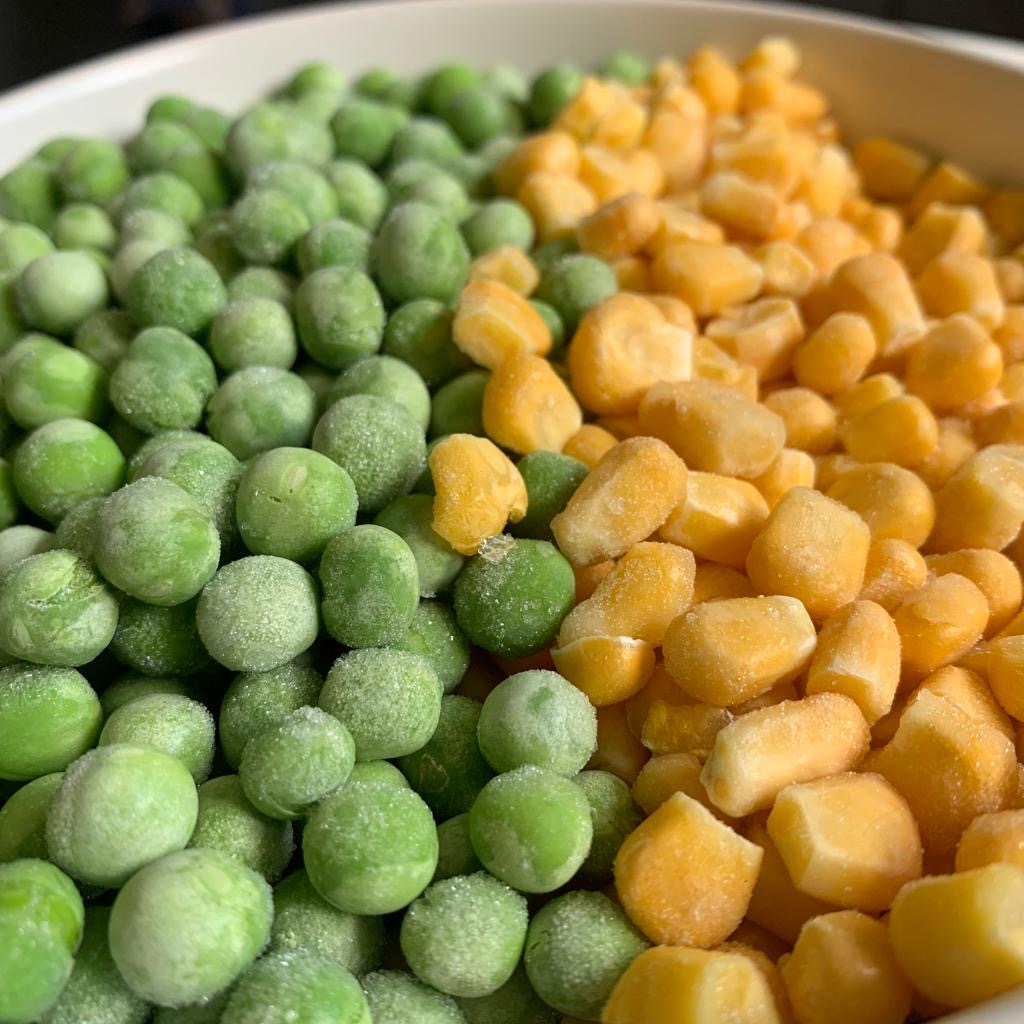When it comes to food shopping we want the best value for our money and fresh fruit and veg can look more appealing. There are lots of myths floating around about frozen options. Maybe you’ve been told that fresh is best and you don’t even peak into the frozen aisle. Or that frozen options have no nutritional value due to the freezing process. But is this true?
Let’s start by taking a look at fresh produce.
Fresh Produce
Nothing quite compares to the first ripe strawberry of the season or a delicious perfectly juicy peach. Fresh fruit and vegetables can be absolutely divine. So straight off the bat we know that for the most part fresh fruit and veg can be tastier than frozen. But fresh doesn’t mean best, there are also some downsides such as:
- can spoil quickly
- spoilage can lead to increased food waste
- depending on season can be quite expensive
Frozen Produce
Lets first address one of the key concerns when it comes to frozen fruits and veggies.
Is frozen food less nutritionally valuable compared to fresh?
The short answer is NO
Due to how quickly fruit and veg are frozen from the moment they are picked, very little nutritional value is lost. Foods that are destined to be frozen are also usually frozen at their peak ripeness when they contain the most nutritional value(1). However, when cooking it is worthing baring in mind that the longer the fruit or veg is cooked for the more nutritional value it will lose.
Many studies have found that the nutrient status of frozen fruit and veg was consistently similar to the fresh alternative. In one study, they found that frozen peas had a higher level of vitamin C than peas that had been stored in a fridge at home for a few days(2).
Other benefits offered by frozen fruit and veg includes:
- long shelf life
- is a cost-effective way to achieve your 5 a day(3)
- offers an option to those who are unable to access a supermarket on a regular basis to meet their 5 a day needs
- one study found that those who consumed frozen fruit and veg actually ate more than those who only ate fresh(4)
- have already had the pesticides and dirt washed off them, so they can be cooked and eaten straight away
- they require no prepping such as washing or chopping – this is great if you are disabled, have a chronic illness, are elderly or simply don’t want to spend your time washing and chopping fruit and veg
- offer consistency not found in fresh food – when you buy frozen you know you are getting a product that is consistent in its taste, appearance and quality
Downsides:
- not always as tasty – this will depend on the fruit or veg, however a frozen berry will taste just as good as a fresh one in a smoothie or make sure to cook in spices and to not overcook the vegetable to avoid the mushy taste most classically associated with frozen vegetables
- some have additives such as salt or butter – if you want to remove these additions look for options in the shop that have no additives or rinse thoroughly before you eat them
How to cook frozen vegetables
The best way to maintain the most nutritional value from your frozen vegetables is to steam them(5). This takes a surprisingly short amount of time as the way they are frozen involves the vegetable being briefly blanched.
If you don’t want to steam your vegetables or don’t have the necessary tools to do so, no worries, a microwave also works well. Cover the veg with some water and whack in the microwave for a few minutes. The key thing is to not overcook your veg and this leads to a loss of nutrients and quite frankly, mushy vegetables are not the tastiest.
If you find this way of cooking a little bland, try adding herbs and spices once cooked or quickly pan fry with a bit of garlic oil to add an extra kick of flavour.
Takeaway
Fresh or frozen, as long as you are aiming to get your 5 a day, it doesn’t matter what option you go for. One is not necessarily better than the other. The great thing about frozen fruit and vegetables is that they make fruit and vegetables more accessible which should always be the aim.
References:
- Kapica, C. and Weiss, W., 2012. Canned fruits, vegetables, beans and fish provide nutrients at a lower cost compared to fresh, frozen or dried. J Nutr Food Sci, 2(4), p.131.
- Favell, D.J., 1998. A comparison of the vitamin C content of fresh and frozen vegetables. Food chemistry, 62(1), pp.59-64.
- Miller, S.R. and Knudson, W.A., 2014. Nutrition and cost comparisons of select canned, frozen, and fresh fruits and vegetables. American Journal of Lifestyle Medicine, 8(6), pp.430-437.
- Storey, M. and Anderson, P., 2018. Total fruit and vegetable consumption increases among consumers of frozen fruit and vegetables. Nutrition, 46, pp.115-121.
- Saikia, S. and Mahanta, C.L., 2013. Effect of steaming, boiling and microwave cooking on the total phenolics, flavonoids and antioxidant properties of different vegetables of Assam, India. International Journal of Food and Nutritional Sciences, 2(3), p.47.

Leave a Reply